A BRIEF HISTORY OF CHESS AND CHESS-OLYMPIADS

Shatranj Ke Khilari, a movie based on Premchand’s story, directed by Satyajit Ray, narrates the story of the last days of the dysfunctional court of Nawab Wajid Ali Shah of Awadh, where two of the nobles at Wajid Ali Shah’s court, on the eve of the Sepoy Mutiny get so engrossed with shatranj, the game of chess, that their nawabdom crumbles as East India company closes on them and annexes Awadh. Such is the power and grip that the game of chess beholds.
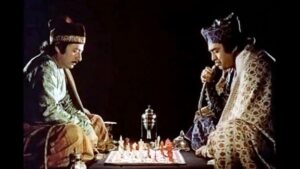
Chess has continued to rise in popularity in India in the last few decades primarily due to chess Grandmaster and former 5-time World Champion Viswanathan Anand. India is one of the best and fastest developing countries in chess. India is now ranked No. 4 globally and has 73 grandmasters, up from 20 in 2007. There are two Indians in the women’s top 10 and three Indian men in the top 25. At 10, Praggnanandhaa from Chennai became the youngest International Master in the game’s history. Two years later, in 2018, he became the world’s second-youngest chess grandmaster. Some 50,000 chess players have officially registered as chess players in India. And at least a million people are playing local tournaments all over the country

Congruously coinciding with the soaring popularity, the World Chess Federation (FIDE) has bestowed Chennai with the honour of hosting the 44th International Chess Olympiad 2022, in which over 2000 players from more than 200 countries are participating after they determined that Russia, which was initially assigned the task, would not do it because of the ongoing Russia Ukraine war. When FIDE started looking for new bidders, India emerged as the topper among other countries to host the high-profile tournament for the first time. And thanks to the Union Government, which allotted the hosting rights of the world’s biggest chess event to Tamil Nadu. Consequently, the 44th International Chess Olympiad will take place from July 28 to August 10 at Poonjeri Village in Mamallapuram, a UNESCO heritage site located about 50 kilometres from Chennai, Tamil Nadu.

The chess Olympiad is a historical event, and Chennai is lucky to engrave the next chapter of the history of the Chess Olympiad. To know why and how we may have to go down the history of chess olympiads. In 1924, the first attempt to include chess in the Olympic Games was unsuccessful because of trouble distinguishing amateurs from professional chess players. Therefore, first, two Olympiads were conducted unofficially in 1924 and 1926. The conclusion of the first unofficial Chess Olympiad became a landmark in chess history as the World Chess Federation (FIDE-Fédération Internationale des Echecs) was established during its concluding day on July 20, 1924, in Paris, which became the birthday of FIDE and also the international day of chess.
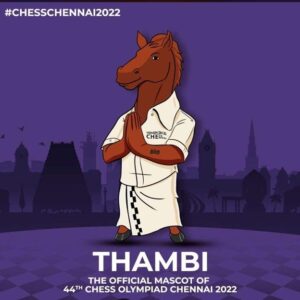
FIDE conducted the first Official Olympiad (the name “Olympiad” came to be official only in 1952) in 1927 in London. The Olympiads were held occasionally and irregularly until World War II. The Olympiads suffered a long break between 1939 and 1950, but since 1950 they have been held regularly every two years. FIDE has organised 43 Olympiads since 1927, and the Olympiad in Chennai will be the 44th. However, the evolution of the Olympiads is not complete without diving into a bit of the history of chess.
The History of Chess
The history of chess dates back to the 6th century. It emerged in what is now modern-day India and quickly spread due to the popularity of its simple yet strategic gameplay. Chess has evolved: from a game played by kings and nobles to a game enjoyed by all. Chess has been around for centuries, with the earliest known reference dating back to the 6th century in India. The popularity of chess quickly spread to Europe and eventually to the rest of the world. The last century has introduced many new variations, the most common being Speed Chess, played with faster time limits and without a clock.
Ancient Origins of Chess
The exact origins of chess remain a mystery, although there are several compelling theories about where it first appeared and how it developed into the game we know today. Some of the most popular speculations include the following: – The game may have originated in ancient India, known as “shatranj”. The earliest records of this game are from the 6th century. – Chess was also played in Ancient China, referred to as “Shàng Qià”. The earliest history of this game dates back to the 3rd century. – It is believed that the game of shatranj was brought to Persia by the invading Huns in the 6th century.
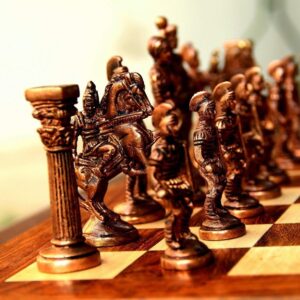
The Middle Ages – When Chess Was for the Elite
In the Middle Ages, the ruling class primarily played the game of chess because it required considerable wealth to procure the materials necessary to create a game board and pieces. The game of chess took off at a time when travel and access to education were predominantly the privileges of the rich. In addition, the ruling classes started viewing chess as an educational tool and entertainment. The game got disseminated throughout Europe as a game of social prestige and importance. During this time, new game variations got introduced as the game of chess was still evolving. For example, two main chess variations emerged; the “Franco-Italian” and the “Iberian”.
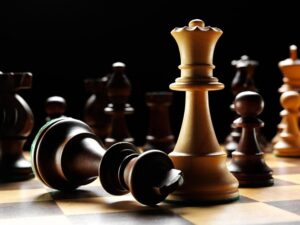
The Renaissance and the Game’s Revival
The Renaissance saw the emergence of several new ideas and philosophies. One of these was the idea that chess should be accessible to all. As such, the creation of chess clubs, where members could play for free, was one of the most important evolutions in the annals of chess. Moreover, the rules of chess were codified and have remained relatively static to the present day. This time also saw the rise of the use of chess as a tool for the teaching of warfare. Primarily because of the shaping of pieces like soldiers, the game became a way of introducing a military strategy to children.
The Modern Era: From Computer Games to Live Tournaments
The modern era of chess has seen several significant developments in terms of its popularity and rules and regulations. The introduction of the Fischer clock was vital as it allowed players to regulate their time usage. This time also saw the opening of the “FIDE” system, which is the basis of modern chess notation. This system allows for easy standardisation of chess rules, whether in tournaments or online. The introduction of the internet also saw the popularity of online chess skyrocket. Today, millions of people across the globe play online chess. In addition, computer games such as “Depth” and “Crazyhouse” have increased the popularity of chess as a mind sport.
The Future of Chess
The future of chess looks bright, as new developments suggest that it will continue to be famous for many years. One such development is the introduction of “Speed Chess”, where there are faster time limits and no use of a chess clock. Another exciting development is the introduction of “Blitz Chess”, where the game is played within shorter time limits but without using a chess clock.
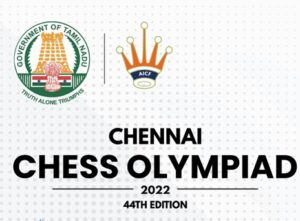
Finally, returning to the chess Olympiads, the last Olympiad was held in Georgia in 2018. Due to the COVID-19 pandemic, the tournament could not be held in 2020. In August 2020, India and Russia were the joint winners of the 2020 Online Chess Olympiad after server malfunction issues ruined the final. Now, India looks all set to do an excellent job as they will be playing on home turf for the first time in Chennai, which is aptly nicknamed the Mecca of Chess.
 Dr. K. Jayanth Murali is an IPS Officer belonging to 1991 batch. He is borne on Tamil Nadu cadre. He lives with his family in Chennai, India. He is currently serving the Government of Tamil Nadu as Director General of Police, Idol Wing CID.
Dr. K. Jayanth Murali is an IPS Officer belonging to 1991 batch. He is borne on Tamil Nadu cadre. He lives with his family in Chennai, India. He is currently serving the Government of Tamil Nadu as Director General of Police, Idol Wing CID.


Aug 9, 2022 at 12:23 PM /
I think this is among the most important info for me. And i’m glad reading your article. But want to remark on some general things, The web site style is perfect, the articles is really great : D. Good job, cheers